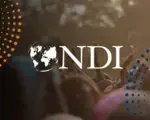Legislative
Presidential
Displaying search results 1501 - 1510 of 5108

General
2021 Ecuador General Elections

General
2021 Peru General Elections

Local
2020 Bosnia-Herzegovina Local Elections

Presidential
2020 Tajikistan Presidential Election

General
2020 Jamaica General Elections

Referendum
2020 Algeria Referendum Elections

Presidential
2021 Iran Presidential Election

Parliamentary
2021 Albania Parliamentary Elections

Gubernatorial
2020 Nigeria Edo State Gubernatorial Election

